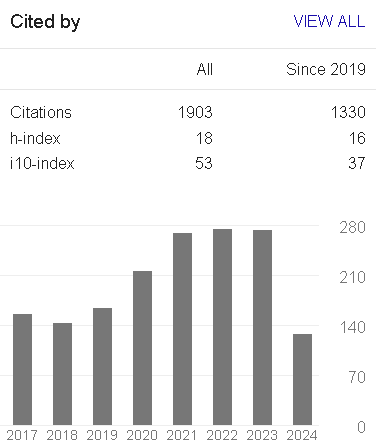DIGITAL TWINS IN SMART CITIES: A CONCEPTUAL FRAMEWORK FOR URBAN PLANNING AND SUSTAINABILITY
Keywords:
Digital Twins, Smart Cities, Urban Planning, Sustainability, IoT, Urban SimulationAbstract
Digital Twins, virtual representations of physical entities, are rapidly becoming integral to the development of smart cities. This paper proposes a conceptual framework for the application of Digital Twins in urban planning and sustainability efforts. The framework outlines how Digital Twins can be utilized to simulate, monitor, and optimize urban infrastructures, thereby enhancing city management and sustainability. By integrating various data sources, from IoT devices to environmental sensors, the framework aims to create a comprehensive digital mirror of the city that supports decision-making processes. This paper serves as a guide for urban planners, policymakers, and technologists interested in leveraging Digital Twins for smart city development.
References
Grieves, M., & Vickers, J. (2017). "Digital Twin: Mitigating Unpredictable, Undesirable Emergent Behavior in Complex Systems." Transdisciplinary Perspectives on Complex Systems, 85-113.
Kitchin, R. (2014). "The Real-Time City? Big Data and Smart Urbanism." GeoJournal, 79(1), 1-14.
Batty, M. (2018). "Digital Twins." Environment and Planning B: Urban Analytics and City Science, 45(3), 817-820.
Zhang, X., & Chen, R. (2021). "Digital Twins for Smart Cities: Concepts, Challenges, and Opportunities." IEEE Access, 9, 25477-25491.
Downloads
Published
How to Cite
Issue
Section
License
Copyright (c) 2023 COMPUSOFT: An International Journal of Advanced Computer Technology

This work is licensed under a Creative Commons Attribution 4.0 International License.
©2023. COMPUSOFT: AN INTERNATIONAL OF ADVANCED COMPUTER TECHNOLOGY by COMPUSOFT PUBLICATION is licensed under a Creative Commons Attribution 4.0 International License. Based on a work at COMPUSOFT: AN INTERNATIONAL OF ADVANCED COMPUTER TECHNOLOGY. Permissions beyond the scope of this license may be available at Creative Commons Attribution 4.0 International Public License.


